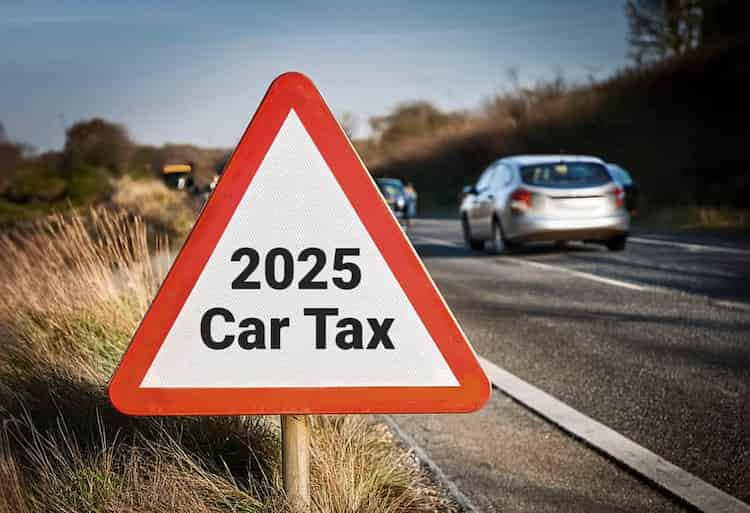UK'S MOST COMPREHENSIVE CAR HISTORY CHECK ONLY £9.99

As of the 1st April 2025, the rules surrounding car tax have changed. Of course, this can send a spike of dread through the heart of anyone who owns a vehicle. Still, this shouldn’t be something that leaves you in the dark. And, fortunately, we’ve outlined how the car tax rules have changed today. This should hopefully make it simpler to plan your taxes, too.

Several significant changes have been introduced in 2025 to our beloved cars. This can be worrying for many drivers, but knowing what’s changed can make things feel a little easier.
One of the most prominent changes thus far to tax is that EVs now have to pay. That’s right - while EVs enjoyed different tax implications in the past, they’ll now be taxed for road tax. Plus, if you’re buying a new EV, you’ll likely also need to pay the expensive car supplement.
As such, the tax benefits of choosing an EV over a petrol or diesel car now seem much lower. Fortunately, EVs are classed in the lowest emission band for road tax. Thus, you won’t have to pay as much for this.
Older EVs will only have to pay £20 road tax per year. However, models registered between 1st April 2017 and 31st March 2025 will pay £195 per year. However, electric vans will be liable for more at £355 annually. Meanwhile, the so-called “luxury car tax” is expected to clock in at around £425 for cars registered after 1st April 2025.
There’s plenty to think about when buying a new car. Alas, one change that’s likely to hurt a lot of people’s wallets is that first-year tax rates are rising sharply. This is especially prominent on cars with higher emissions. Critically, first-year take is doubling at minimum; meanwhile, for low-emission cars, it’s hiking even more by percentage. Be sure to keep this in mind when deciding which car to go for.
Fortunately, second-hand cars that have gone past their first year road tax rate won’t see such a significant change. This falls at £195 for most cars, making it much more affordable. So, if the first year road tax bill feels a bit steep, choosing used might be better. To find out exactly how much tax you need to pay, simply run your registration through our free road tax check.
Alternatively, you can also find the road tax rates using the following PDF.
Overall, 2025 sees several changes to road tax, and these changes are important to be aware of. That being said, the new tax changes will likely hit hardest for EV owners and new car buyers. Given this, there’s potentially more scope than ever to invest in a used car over new. This helps avoid those nasty “luxury car taxes.” Plus, older models may also have lesser ongoing road tax.
In the end, the exact tax you’ll end up paying will depend heavily on the type of car. Still, EVs are being brought much more in line with other types of cars. Thus, their appeal may drop slightly as well.